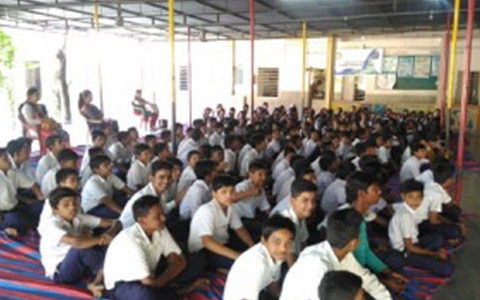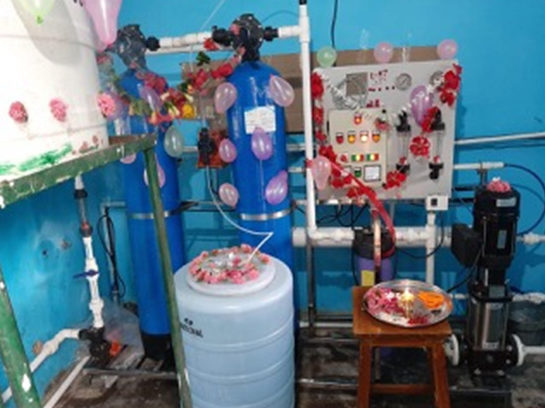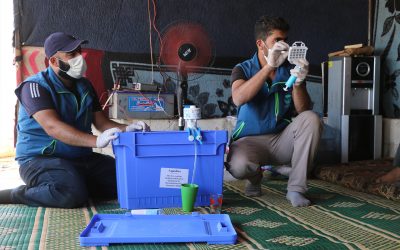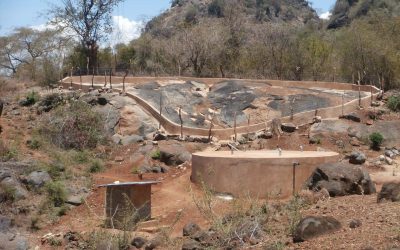Around 2,000 children and staff are now benefiting from clean and safe drinking water in the Indian state of Gujarat thanks to a six-year long Rotary initiative.
The result of the partnership between Rotary Sussex Vale near Brighton and Baroda Metro Rotary Club has resulted in less sickness and better school attendance.
Both clubs have invested substantially in five schools around Vadodara – Adarsh Kanya, Dajipura, Pandit Deen Dayal Upadhyay, Desar and Samlaya.
The link for the West Sussex club has been Rotarian Russell Taylor, who visited Baroda in 2013 through his work with the Flint Group. They were involved in building facilities at the Adarsh Kanya School.


Around 2,000 children and staff are now benefiting from clean and safe drinking water in the Indian state of Gujarat thanks to a six-year long Rotary initiative.
“We provide 30 beds for children in this weekly boarding school, who were sleeping on thin mats on a stone floor,” explained Russell.
“Thereafter, both Rotary clubs focused our joint efforts on the provision of clean drinking water. I was working with Nitin Bhate from Baroda Metro Rotary Club.
We provide 30 beds for children in this weekly boarding school, who were sleeping on thin mats on a stone floor,”
Russell explained how previously the water supplies were contaminated and unpleasant to drink.
“Practically all the students had to carry a water bottle from home because of the bad quality of the bore water at the school,” he added.


The Rotary clubs funded the installation of a reverse osmosis water purification unit at the school. With clean water, attendance rose by up to 25%.
“This was quite tedious given the fact that many students come to the school, especially from the village-based schools, after travelling for several kilometres.”
As a result, Russell explained, many students failed to turn up to school, and those who came to class without making provisions for potable water from home, were taken ill after drinking water from the school.
The Rotary clubs funded the installation of a reverse osmosis water purification unit at the school. With clean water, attendance rose by up to 25%.
The total investment was around £6,500, which covered design, installation, maintenance and new filters for three years in each of the school. Baroda Metro Rotary Club is committed to funding the ongoing maintenance of the units and the addition of filters.
“The project was fun to do, and it was very rewarding to see the difference made to children’s lives,” added Russell. “This was a proven business model for international Rotary collaboration.
“Throughout, there was excellent planning, professional project management and truly effective implementation. These have been the hallmarks of Baroda Metro RC tremendous efforts to make these important projects come alive in a timely way.”










